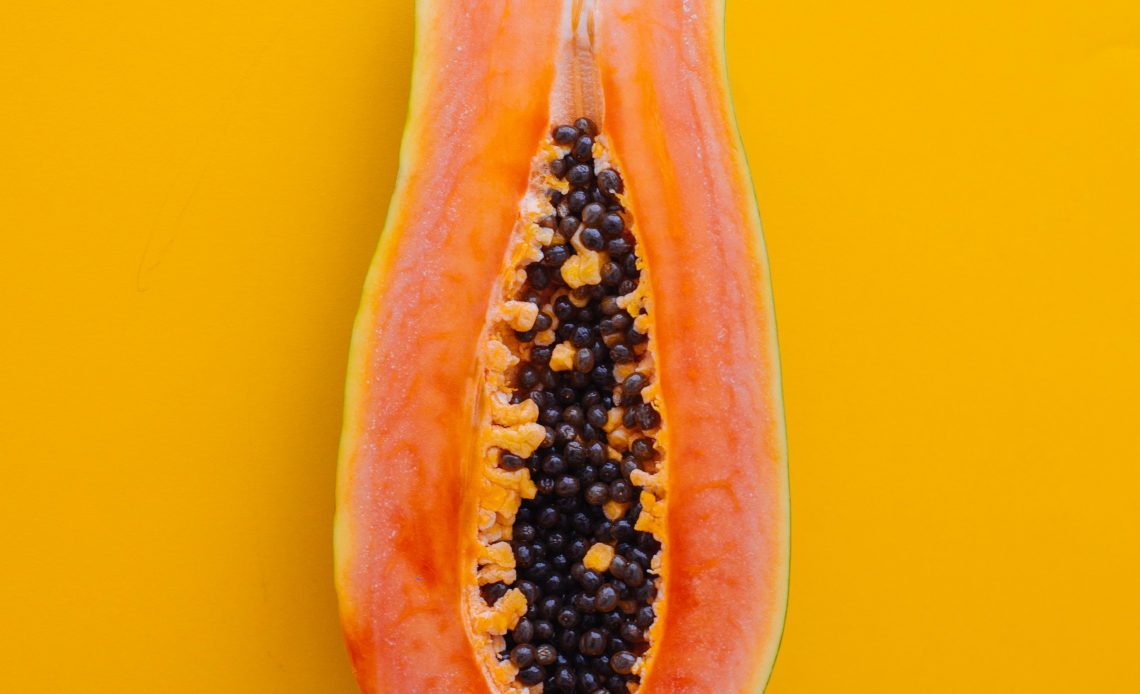By Sabrena Salahudeen
Papaya, or pawpaw, is native to Central America. Throughout the migration of this succulent plant, papaya leaves were used to wrap tough meat in order to soften it. Papaya seeds are renowned for killing off intestinal and parasitic worms. The peppery papaya seeds, once sun dried, act as a substitute for black pepper. Within Chinese medicine, papaya is known for its warming nature, rather than cooling, like other fruits. Green papayas can be unripe, but yellow or orange skin indicates the ripe ones. Ripe papayas are soft to the touch like avocados. They should ripen at room temperature. Unripe or green papayas contain the papain enzyme used to breakdown proteins. Ripe papayas are good for asthma, coughs, stomach ulcers, excess mucus, indigestion, diarrhea, rheumatism, liver-spleen-pancreas dysfunction and cancer prevention. Papayas are excellent sources of vitamins A, C, E, and rich in phosphorus, calcium, iron, and potassium.
Cooking it deactivates the enzyme, so prepare green/unripe papaya in fruit salads, kebobs and frozen smoothies. Ripe papaya and lemon or lime juice enhance its flavour. Also adding extra virgin olive oil, balsamic vinegar, herbs and seasonings to taste with purée seeds makes an excellent salad dressing. Its peak availability falls within January to April. If you have allergic reactions to insect bites, rubbing green papaya into a mosquito bite irritation, greatly reduces inflammation. Sizes of papaya vary from strain to strain, however smaller papayas have more distinct flavour. The bitter leaves of the plant are believed to prevent malaria because mosquitoes avoid people whose blood isn’t “sweet”.






